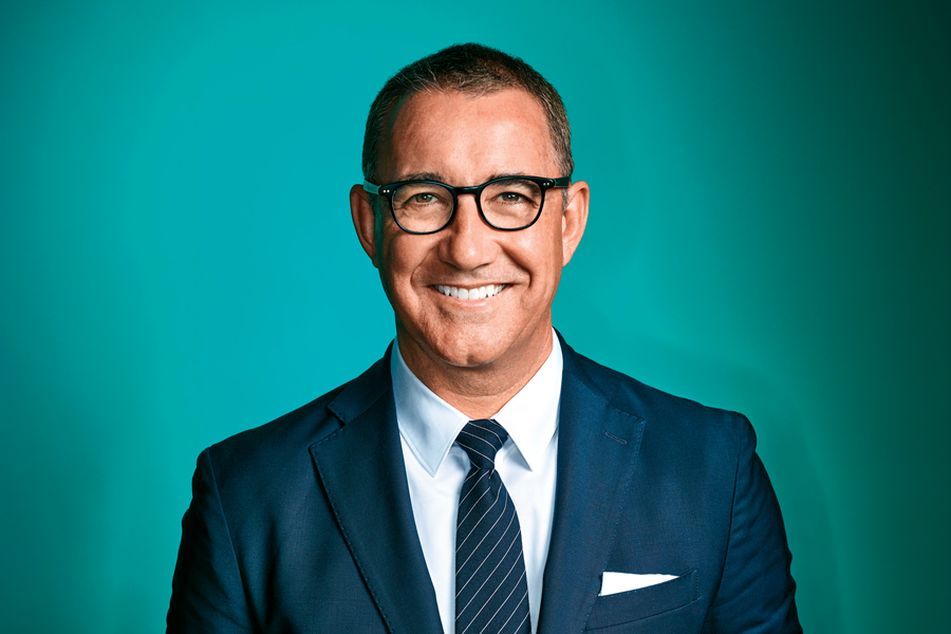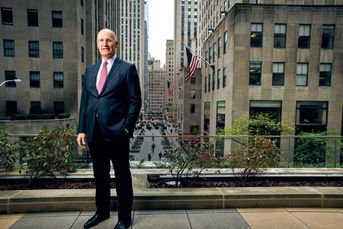Joe Duran has a game plan, and anyone can play
 Joe Duran. Photo credit: Brad Trent
Joe Duran. Photo credit: Brad Trent
The CEO of United Capital built a formula for holistic financial planning that any firm can tap into — for a price.
There’s a tech company Joe Duran admires, but it’s not Apple, Amazon or any of the other high-tech giants led by high-profile, high-energy and high-charisma CEOs like himself. It’s Intel, the chipmaker giant and supplier to well-known consumer-facing tech companies.
Following the “Intel inside” strategy translates into building — alongside his firm’s branded advisory business — an army of independent advisory firms that white-label FinLife Partners, which the firm calls its “wealth management operating system,” said Mr. Duran, 50, founder of United Capital Financial Advisers.
A combination of technology, investment management and planning tools, the 2-year-old service is built to deliver the holistic approach to advice that Mr. Duran has long championed. It takes into account the client’s employment, spending patterns and personal preferences, as well as their biases about money. It includes several trademarked and registered tools that turn the probing of money and life-related emotions into participatory “games,” which the firm believes leads to more accurate planning and better outcomes.
3 ways to play
Among the interactive games are Money Mind, which reveals how the participant feels about money and how it affects their life; Honest Conversations, an exercise with an adviser to help identify and clarify personal goals; and Ideal Life Index, a personal benchmark that helps track progress to the kind of life an individual wants to live.
(More: United Capital’s Duran: What the ‘one thing’ that helps you stand out?)
“You have to use gamification to incorporate clients into decision-making to engage their brain and hearts in a data-centric way, and almost no one else is using it,” said Mr. Duran, who in 2016 received an InvestmentNews Icons & Innovators Award.
Mr. Duran’s determination may be a result of his unusual background. He was born in war-ravaged Rhodesia, now Zimbabwe, and left Africa and a broken home as a teenager. After living in London and moving to the U.S. to attend Saint Louis University, where he played rugby, he married the daughter of a former Bateman Eichler investment banker. His late father-in-law’s contacts got him started in the financial services business in Southern California, and eventually led him to the presidency of Centurion Capital. General Electric acquired the firm in 2001, netting Mr. Duran an estimated $13 million.
Having money didn’t quell his anxieties, which led to soul-searching, figuring out his money-related emotions and founding United Capital, which has made money and emotions a focus.
Through FinLife Partners, he believes he can empower advisers to know their clients more thoroughly than their competitors do.
Of course, it remains to be seen whether financial advisers will buy into the approach.
“I see a lot of growth potential for FinLife Partners,” said David DeVoe, whose eponymous consultancy and investment bank specializes in wealth management companies. “Advisers are looking for the benefits of scale, and this partnership provides a 'synthetic’ scale opportunity.
“A challenge United Capital faces is the overall bias of advisers to exert a high degree of control over their businesses,” he said. “RIA owners are an independent bunch. The vast majority may be turned off by one of the most powerful aspects of the service: a methodical and efficient but standardized way of doing things.”
Many competitors
Another challenge comes from other players vying for the same advisers and end-clients.
“Enterprise digital wealth is a very competitive space, where it’s not easy to win,” said Lex Sokolin, founder of robo-adviser NestEgg, who is now global director fintech strategy and a partner with Autonomous Research, based in London.
“United Capital’s advantage is the AUM they already have, but they’re up against tech firms and they have to persuade other advisory firms to use what they’ve created. Teaching new behavior isn’t easy,” he said.
So far, 26 firms overseeing $10.4 billion have signed onto the original FinLife OS system, which requires them to use United Capital’s CRM system. In April, the firm introduced FinLife CX, which allows advisers to use their own CRM system. Advisers using the new version pay an annual $600 per-client fee, plus ongoing and support fees that vary based on the complexity of the installation.
“We will have 15 to 20 firms a year joining the platform, which will represent north of $25 billion in assets,” Mr. Duran said. “We see several multibillion-dollar firms looking to join.”
Those advisers will complement the 222 who manage $23.3 billion in assets as employees and shareholders of the Newport Beach, Calif.-based firm. They tend to be advisers who before they joined or sold their firm to United Capital already had developed a holistic approach to planning and customer service.
(More: Time or money: Which is more important?)
“One of the things that attracted me to the firm is the way it approaches money and the client experience,” said Cary Carbonaro, who sold her business to United Capital in 2012. “I didn’t call what I was doing 'financial life management,’ but that’s what it was — just without the system and tools. Now I have those and the help with compliance and everything else that frees me to grow.”
Ms. Carbonaro, an InvestmentNews Woman to Watch and an ambassador for the Certified Financial Planner Board of Standards Inc., is a member of the firm’s managing director advisory council that meets with the firm’s leadership three times a year. She also works as a liaison to the advisers who sign onto FinLife Partners, noting that many of them are successful traditional advisers who don’t have a financial planning background and are drawn to the program because they realize that it helps them know their clients in a way they hadn’t known them before.
‘Soft’ approach
Mr. Duran is convinced that this “soft” approach provides the hard answers for advisers, who are facing greater competition.
“Advisers will have to do more work and deliver more personalized investment solutions to earn more and even to survive,” he said. “Since planning and investments have become commodities, advisers have to deliver intimate and truly personalized solutions. If they don’t, they won’t be able to maintain pricing or grow.”

Mr. Sokolin believes a tech-human hybrid approach “is 100% correct in the medium to long term,” as long as the solution involves “fully integrated technology that goes all the way to client and is driven by the client.”
Few who know Mr. Duran doubt his determination to make FinLife Partners the preferred platform for providing that integrated client solution.
“He has a clear vision of the future and what United Capital should be, and he’s really driven to get there,” said Gail Graham, who left a senior job in marketing and business development at Fidelity in 2012 to head strategy and later marketing at United Capital. She started Graham Strategy, a consulting firm, last year.
Evan Cooper is a freelance writer for InvestmentNews.
Learn more about reprints and licensing for this article.







